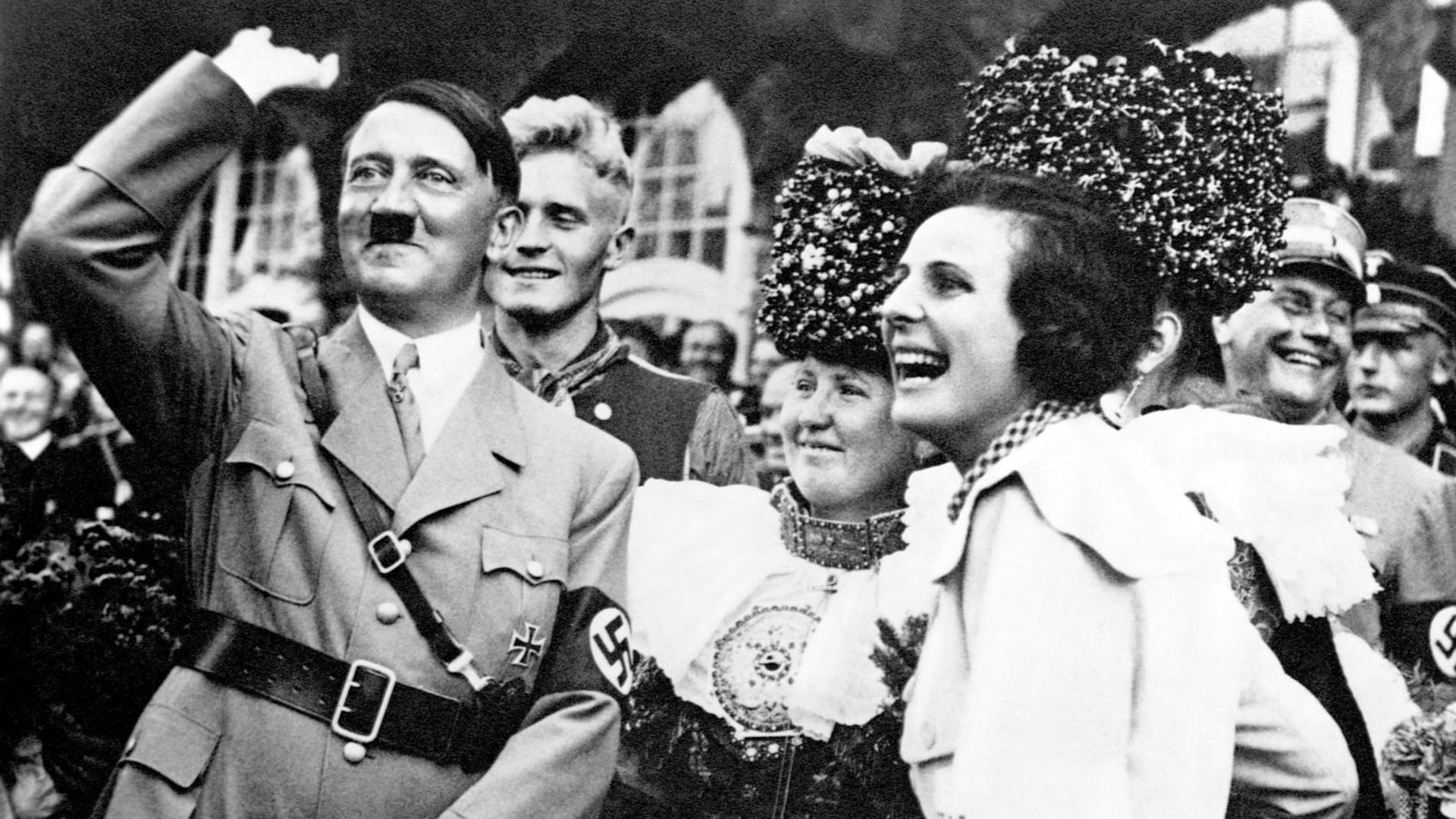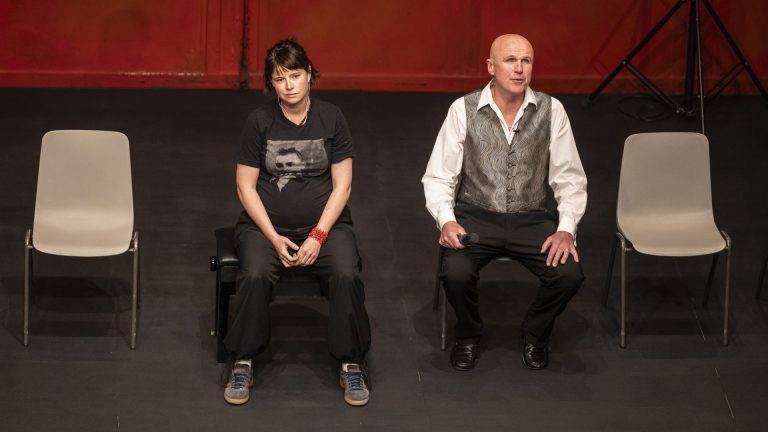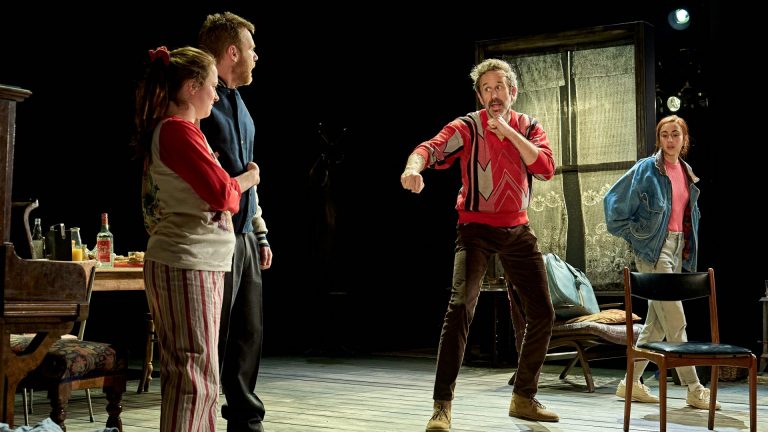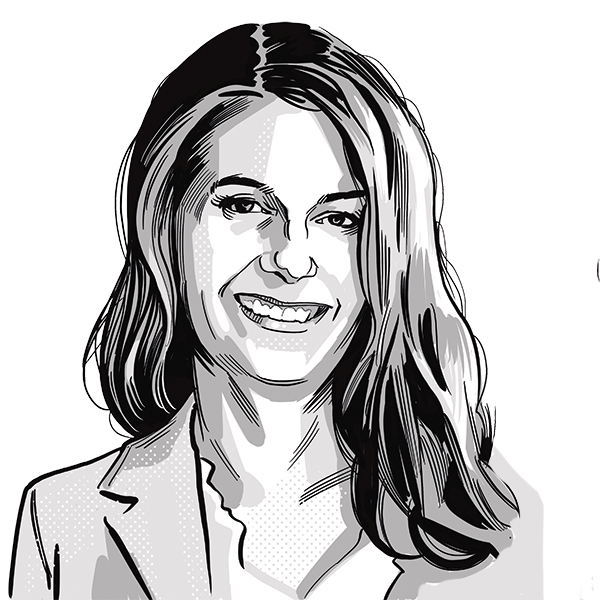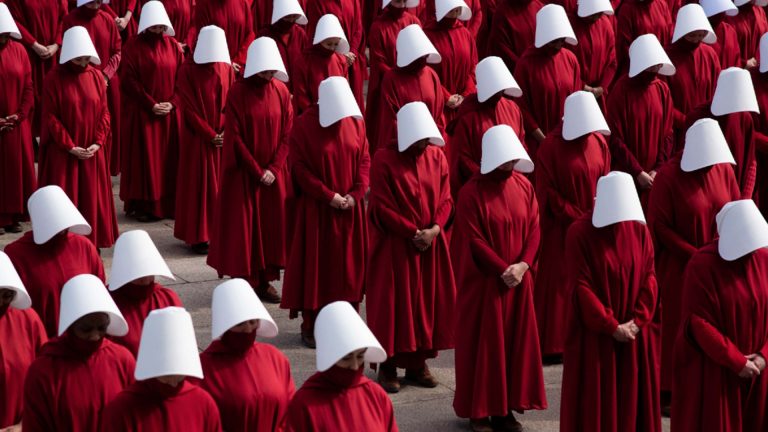Riefenstahl
(Selected cinemas)
In her famous 1975 essay on Leni Riefenstahl, “Fascinating Fascism”, Susan Sontag warned that, “our rehabilitations are softer, more insidious” than in the past and that, in spite of the gymnastic efforts of the Nazi film-maker and her cineaste admirers to insist otherwise, Triumph of the Will (1935) was the “most purely propagandistic film ever made, whose very conception negates the possibility of the film maker’s having an aesthetic or visual conception independent of propaganda”.
Fifty years after Sontag’s verdict, Andres Veiel’s magnificent documentary settles the case once and for all – precisely by letting Riefenstahl, in her interviews, recordings and archived files, speak for herself. He has no need to resort to caricature or cartoonish demonisation. Even as she squirms, deceives and bullies her critics, his subject incriminates herself.
This is forensic film-making at its very best. For six years, Veiel combed through 700 boxes of movie reels, videos, news cuttings, correspondence, diaries, home videos, drafts of Riefenstahl’s memoirs, and recorded phone conversations, and hundreds of thousands of photographs.
What emerges is a character so steeped in her own duplicity that it is hard to know whether, at times, she half-believes the big lie. “Art is the opposite of politics,” she explains, even as sequences from Triumph of the Will and Olympiad (1938) demonstrate how inextricable the two truly were in her work as a filmmaker for the Third Reich.
In 1980, she claimed that “politics is the opposite of everything that has fulfilled and fascinated me throughout my life”. Yet she wrote adoring letters to Hitler, worked closely with Goebbels (who tried to seduce and then sexually assault her in his apartment) and was good friends with Albert Speer, long after his release from Spandau Prison in 1966.
“You think I should have been a resistance fighter?” she says on a 1970s chat show, as though the idea is unthinkable. When asked how much she knew about the death camps she again behaves as though the question is itself preposterous – “How I know this? How I know this?” – and claims that she had only heard of Dachau.
Yet in the filming of Tiefland (not released until 1954) she used 50 extras from an internment camp, most of whom were then sent to Auschwitz. Veiel uncovers evidence that, in September 1939, her directions for a film set to be cleared may have led to the massacre of Polish Jews in Końskie, south-central Poland.
One has only to watch the clips of Riefenstahl at work to realise how intimately she was involved in Hitler’s propaganda. She was no documentarian, much less a creator of authentic beauty. Her job was to turn the hateful spectacle and vicious ideology of Nazism into mesmeric cinema.
“These wounds have still not healed,” she says of Germany’s wartime experience – and the 1970s audience applauds. But what, exactly, is it applauding? And what to make of the recorded calls with ordinary Germans? One man says on the crackling line that a couple of generations must pass before morality and virtue will return to the homeland. “Yes,” she replies, “the German people are predestined for that.”
Riefenstahl, who died in 2003 aged 101, would doubtless have loved the resurgence of nationalism around the world and the rise of the AfD in Germany. But she would have carried on lying, maintaining that, somehow, she was the true victim. “That’s why you can’t speak the truth!” she says in the film. It is in such outbursts that she reveals how deep was her complicity and how resilient her dark allegiances.
Do read TNE editor Steve Anglesey piece’s on the film here.
Blueprints: How Mathematics Shapes Creativity by Marcus du Sautoy
(4th Estate)
“The mathematics provides the plan or framework. The artist provides the flesh that realises the structure in the medium of their choice: words, paint, music or building materials.”
So writes Marcus du Sautoy – since 2008, professor for the public understanding of science at Oxford, in succession to Richard Dawkins – in this enthralling book.
His explicit purpose is to address the intellectual and creative tragedy popularised by CP Snow’s 1959 lecture on the “Two Cultures”: the split between the humanities and the sciences, between the artist’s studio and the mathematician’s study. “Is it Rubens or relativity?” asks du Sautoy. “Debussy or DNA? Shakespeare or the second law of thermodynamics?”
In fact, as he shows in a series of case studies written dexterously to make the layperson feel welcome, the dichotomy is entirely false. Artists are “secret mathematicians”; just as “mathematicians are secret artists”.
This involves a double revelation. First, du Sautoy shows that the practice of mathematics is intrinsically creative: “We want to be surprised by a moment of jeopardy, by a shift in the direction of proof, to be provoked by an outrageous claim”. Mathematicians are not dry logicians but “storytellers. Our characters are numbers and geometries. Our narratives are the proofs we create about these characters”.
Second, he shows, ingeniously and with much detective work, how the universal structures he calls “blueprints” are as evident in art as they are in his own field. Olivier’s Messiaen’s Quartet for the End of Time makes astonishing use of prime numbers – as does the music of Radiohead. Shakespeare’s poetry bristles with a mathematical sensibility, and an intimate connection between theme and number.
Fractals – the repeating patterns that are the geometry of nature – are essential to understanding the beauty of the Alhambra Palace in Granada; but also, it turns out, the painting of Jackson Pollock. The great choreographer Rudolf Laban used the blueprints embedded in Platonic solids, and specifically the 20-faced icosahedron, to guide his dancers.
One of the many strengths of Blueprints is that it is partly a memoir: an accomplished musician and longtime collaborator with theatrical companies, du Sautoy is exploring the harmonies and convergences within his own passions. The effect is infectious, as is to be expected from one of our most important public intellectuals. A book that will transform your appreciation of mathematics and art.
My Master Builder
(Wyndham’s Theatre, London, until July 12)
In his opening remarks to a press conference, superstar architect Henry Solness (Ewan McGregor) derides those in his profession who fall prey to the megalomania of Howard Roark in Ayn Rand’s The Fountainhead (1943). Which is an instant clue to the narcissism that lurks behind his own bonhomie.
It is July 4 in the Hamptons and Henry and his publisher wife Elena (Kate Fleetwood) are hosting a party to mark his rebuilding of a chapel – the site, it transpires, of their young son’s death a decade before. Among the guests are Henry’s protégé-turned-rival Ragnar (David Ajala), who is the object of Elena’s desire but, awkwardly, is having an affair with her assistant Kai (Mirren Mack); and Mathilde (Elizabeth Debicki), a journalist and friend of Kaia.
In this tangle of lust, love, grief and resentment, it is not entirely surprising to discover that, years before, Henry had an unconsummated affair with Mathilde – then called Hilda – when he and Elena were estranged and that he is still deeply in love with her (or believes himself to be so).
Directed by Michael Grandage, Lila Raicek’s play, partly inspired by Ibsen’s The Master Builder (1892), is much less interested in the feckless Henry or Ragnar (who declares his belief in “hedonistic sustainability”) than the complex inner lives of the female characters. Mathilde is working on a novel called Master, drawing on the power gap in her relationship with Henry. Kaia is scornful both of her boss and of her friend, and, we learn, is more than capable of treachery.
The star of the show, however, is Fleetwood whose remarkable performance as Elena ranges from deep vulnerability to towering rage via the exhaustion of propping up a man-child. “I can’t stand another evening of crusty old men wanking on about who’s built the biggest tower,” she says.
She is also piercingly funny. “I’d fuck Kafka,” she says. “I’d let him lower his monstrous thorax onto my body”. In her acidic wit, emotional ambivalence and abject loneliness beats the true heart of this play and the best reason to see it.
Zbig: The Life of Zbigniew Brzezinski, America’s Cold War Prophet by Edward Luce
(Bloomsbury, May 13)
As chief US commentator for the Financial Times, Edward Luce has long been a must-read columnist and an incisive analyst of the crisis of liberal democracy. In this magisterial biography, he charts the life and times of Zbigniew Brzezinski, national security advisor to Jimmy Carter, and a strategist at the heart of US geopolitics for half a century.Born in Warsaw in 1928, Brzezinski – no less than his longtime friend and rival Henry Kissinger – personified the centrality of intellectually brilliant immigrants to public life in 20th Century America. As adviser to Lyndon Johnson, Hubert Humphrey, and Carter, he offered a hawkish analysis of the USSR and its prospects that differed sharply from Kissinger’s assessment and State Department orthodoxy.
Writing with a kineticism worthy of his subject, Luce is excellent on the most intense moments in his career: his seizure of China policy from Secretary of State Cyrus Vance, leading to full normalisation of US relations with Beijing in 1978; his support for the mujahideen after the Soviet invasion of Afghanistan in 1979; the Camp David summit that brought together Anwar Sadat, president of Egypt, and Menachem Begin, prime minister of Israel; and the disastrous handling of the Iranian hostage crisis.
But Zbig is just as good on Brzezinski’s life as a foreign policy seer after he left office and (especially) in the post-Cold War years. While others in the US foreign policy firmament celebrated the “end of history”, he warned, presciently, of the collapse of the USSR; the “reincarnation of the Fascist phoenix in Russia”; “a triple alliance” between China, Russia and Iran; and, as long ago as 1993, the “makings of a serious collision” in Moscow’s relationship with Ukraine.
Brzezinski died in May 2017 but saw enough of Donald Trump as nominee and president to know how bad he would be for America and the world. This meticulous biography is not only a study of what we have lost but a handbook for what may lie ahead. You can hear Matt Kelly, founder and Editor-in-Chief of TNE, and I in conversation with Edward Luce on the episode of The Two Matts posted on May 6.
The Uninvited
(Selected cinemas)
The shade of Robert Altman looms over Nadia Conners’ stylish debut as a narrative director, an ensemble piece that turns an upscale Hollywood party into a crucible of memory, regret and emotional damage.
Talent agent Sammy Wright (Walton Goggins, on a tear after season three of The White Lotus) and his wife Rose (Elizabeth Reaser) have reached an impasse in her marriage, compounded by his workplace worries and her sense that, in a business as sexist as the movies, her career as an actor may be over.
Guest of honour and Sammy’s most prized client, Gerald (Rufus Sewell), hits the marching powder hard and declares that he might be God. Rose’s ex-lover, movie star Lucien (Pedro Pascal), turns up and effortlessly disrupts the equanimity of all around him. In a touching performance, Lois Smith plays Helen, elderly, confused and convinced that she lives in the Wrights’ home.
Like a compressed nerve, what is meant to be a relaxed soirée fizzes with emotion, often barely articulated. Who, or what, exactly is “uninvited”? It is a measure of Conners’ directorial poise that we are left to answer that question ourselves.


